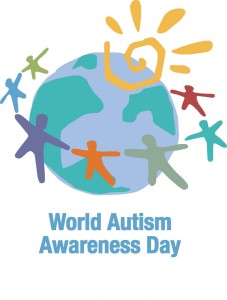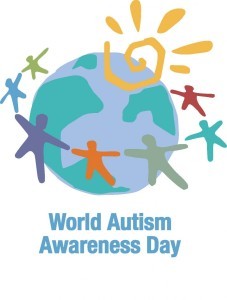 During a standard assessment in a conscious patient, we rely heavily on the patient’s communication – why EMS was called, what hurts, what happened, etc. This can become complicated when assessing a patient with Autism. Even a high-functioning, verbal Autistic patient may or may not physically feel pain. Sensory processing issues often include difficulty interpreting temperature and pain, and it’s hard to assess someone who can’t tell you what hurts!
During a standard assessment in a conscious patient, we rely heavily on the patient’s communication – why EMS was called, what hurts, what happened, etc. This can become complicated when assessing a patient with Autism. Even a high-functioning, verbal Autistic patient may or may not physically feel pain. Sensory processing issues often include difficulty interpreting temperature and pain, and it’s hard to assess someone who can’t tell you what hurts!
Abnormal pain interpretation can sometimes mean a minor scrape or ache is perceived as a trauma or a major injury completely ignored. Traditional OPQRST surveys are not particularly reliable when someone has little sense of where their body ends and space begins and, most likely, what they ARE experiencing is not consistent with what you are observing on scene. Throw in communication deficits and sensory overwhelm of lights and sirens and being surrounded by strangers… patient assessment can be a sticky-wicket indeed.
The first thing you can do is try to remove sensory triggers if possible – remember that an ambulance setting can be extremely overwhelming for someone with Autism but so can the scene itself. Keep the scene as quiet and calm as you can.
Use the parent or caregiver and all the information they have to offer. Believe me when I tell you that most Autism parents have done their homework and know a great deal about their child’s challenges and medical issues. Establish a baseline behavior status to help in your assessment. I purposely did not say “baseline mental status” here because Autism is NOT a mental illness. While it is also not a behavioral issue, unfortunately we must rely on behaviors to help us identify Autism on a scene.
Remember that being touched may be perceived as pain, so do your best to engage the patient while triaging from distal to proximal. A Dollar Store slinky has done wonders for me – it distracts my patient while I get 85-90% of my assessment done before they realize what’s happening. (Don’t ever give a patient your cell phone or keys for this purpose, FYI!) Communicate what you are doing, whether they are verbal or not. A nonverbal patient can still hear and understand you. Bandages and adhesives may cause aggression due to sensory processing issues.
Assess thoroughly – look for less obvious injuries and DO expect the unexpected. Not long after I finished my first responder training, my son came running out of his room one evening screaming and raking his tongue. I quickly tried to figure out what was happening – did he bite it? Get stung or bitten by a bug he ate? Was there a toy in his mouth? In his other hand, I saw the glow-in-the-dark necklace from our earlier outing at Stone Mountain… bitten in half. The glowing liquid was all over his tongue and it was burning him. There was nothing about that in my first aid and responder manuals ![]() It was fine, by the way, Poison Control cleared him, but I never would have imagined looking for that kind of injury. Or the backward tumble out of the shopping cart at the grocery store, or the many times he’s wandered from school settings… but I digress.
It was fine, by the way, Poison Control cleared him, but I never would have imagined looking for that kind of injury. Or the backward tumble out of the shopping cart at the grocery store, or the many times he’s wandered from school settings… but I digress.
Finally, during your assessment be aware of severe food and drug allergies as well as Pica Syndrome. Parents and caregivers are the best fountain of information, but in absence of that resource, there may be alternative IDs or apps that can provide you this valuable information in a snap.
Share your assessment tips and experiences – parents or responders – below. I love hearing from you!








